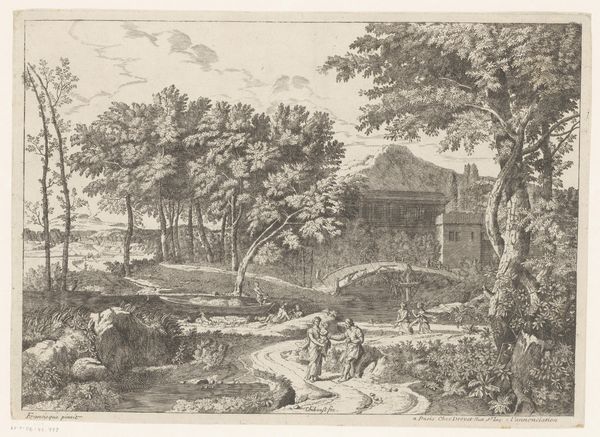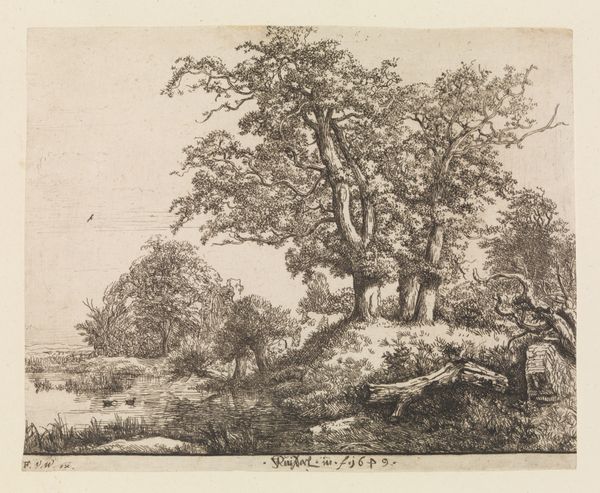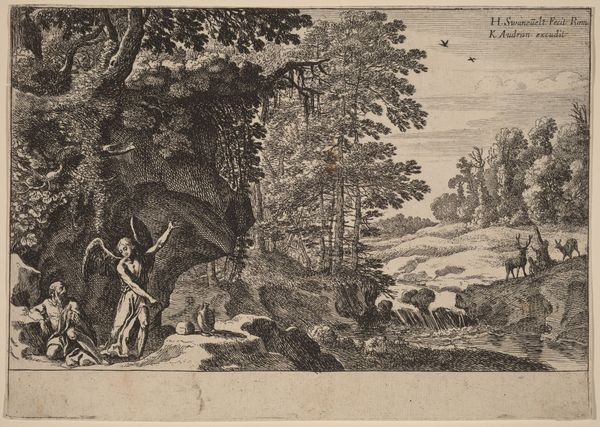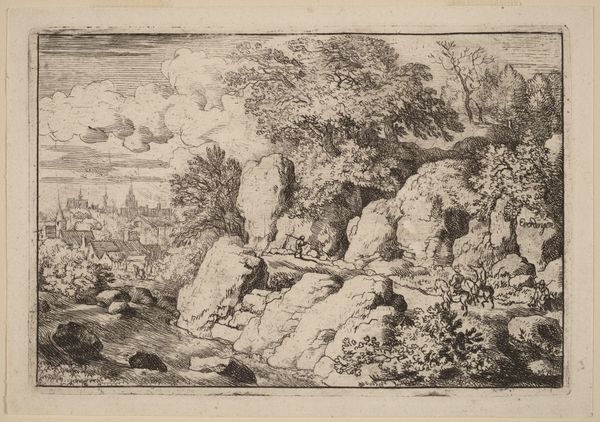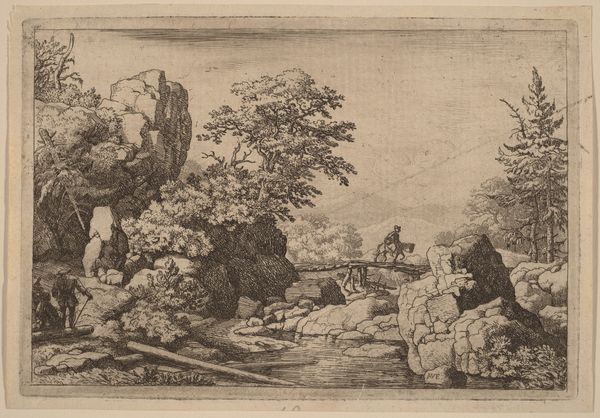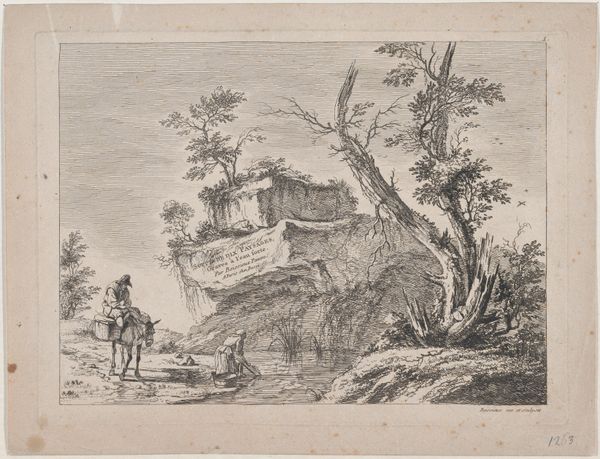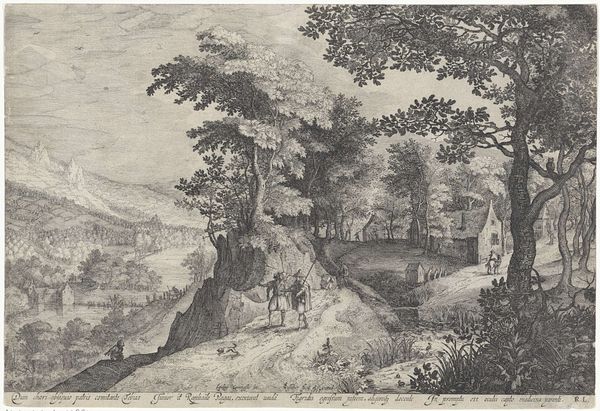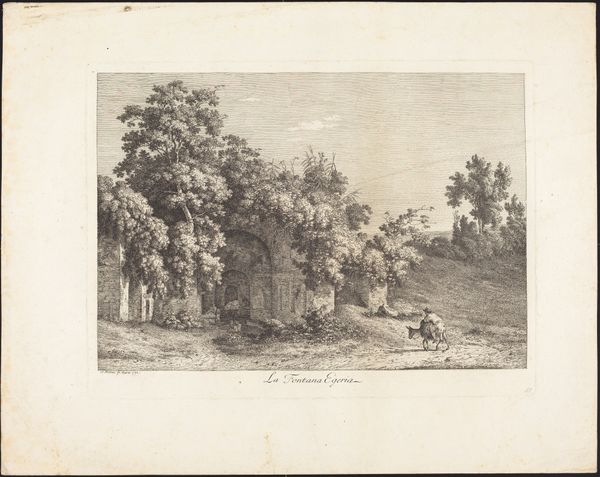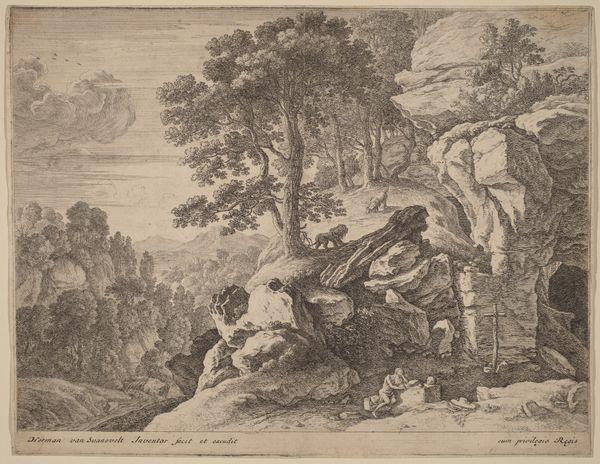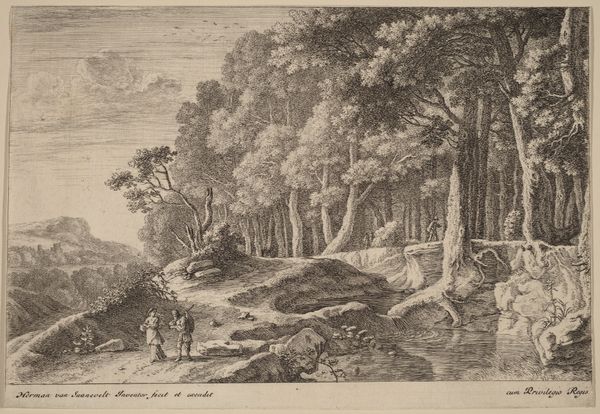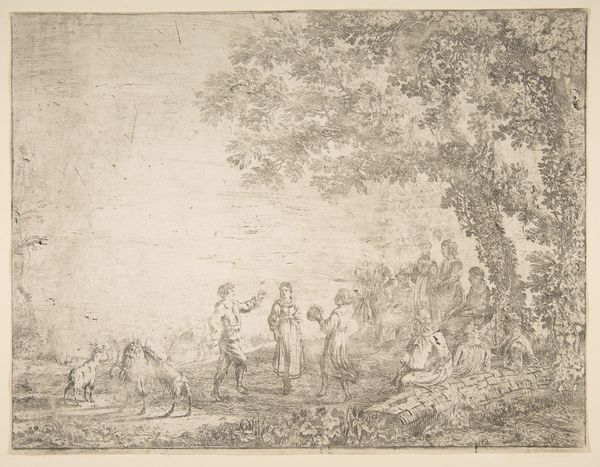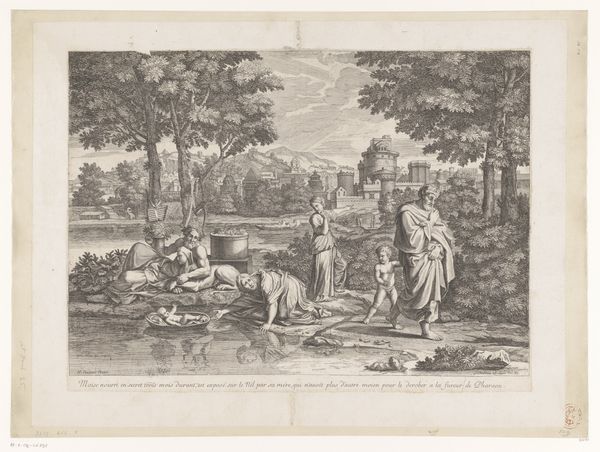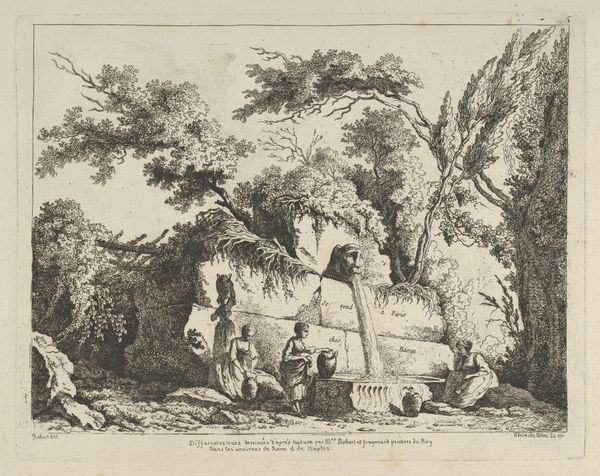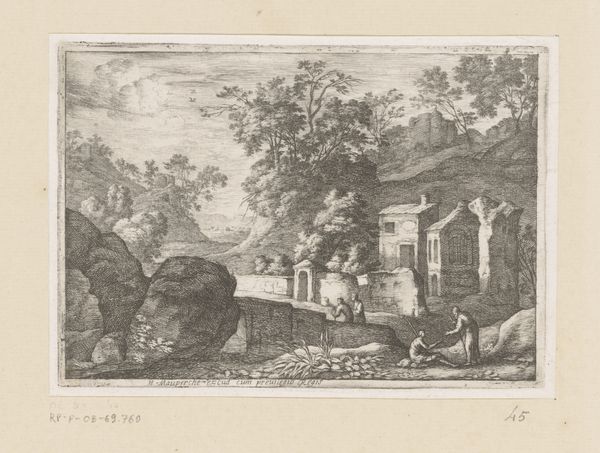
drawing, lithograph, print, etching, paper
#
drawing
#
ink painting
#
lithograph
# print
#
etching
#
pencil sketch
#
landscape
#
figuration
#
paper
#
romanticism
#
line
#
watercolor
Dimensions: 313 × 382 mm
Copyright: Public Domain
Editor: So this is Johann Christoph Erhard's "Mountain Landscape with Staffage" from 1817, made with etching and lithograph. It’s a very peaceful scene, almost idyllic, but there’s also a slight sense of melancholy. What do you see in this work, particularly considering its historical context? Curator: I see a deliberate construction of an ideal, perhaps even a nostalgic longing for a simpler, rural existence, especially poignant considering the sociopolitical upheavals of the early 19th century. Note the figures integrated, almost dwarfed, within the landscape. How do you read their placement? Editor: I guess it makes them seem vulnerable. It almost romanticizes the past or offers an escape from modernity's issues by diminishing the human presence, which highlights how the characters in the picture interact harmoniously with nature in this landscape. Curator: Exactly. Consider this through a lens of Romantic nationalism, which sought to define a cultural identity rooted in the land. Erhard’s work might be interpreted as promoting a certain idealized vision of national identity linked to the land, but for whom was this image of belonging created, and at whose expense? Editor: Ah, so while seemingly benign, it might reinforce existing power structures by subtly defining who 'belongs' based on a connection to a specific rural landscape? It makes me question whether there were other people living there. Curator: Precisely. It's crucial to remember that romanticized visions often erase complex histories and lived experiences of marginalize people in the real world. Editor: I never would have looked at a peaceful landscape and considered that. Thank you. Curator: My pleasure. Art is not simply to be admired but investigated for its deeper implications.
Comments
No comments
Be the first to comment and join the conversation on the ultimate creative platform.
